Review of Turkish Defense Improvements in 2021

Turkey is well on its way to materializing its vision of becoming self-sufficient and one of the world’s leading defense technology manufacturers by 2023. The year 2021 came as a major milestone for the Turkish defense industry. Despite the uncertainties due to the pandemic situation in 2021, Turkey saw a major increase in international sales agreements for defense technology. Turkish defense giant ASELSAN sustained its position as the top exporter and manufacturer of defense technology in the country, with increasing revenues and a higher number of export contracts.
Turkish Air Defense and Drone Industry
One of the main focuses of the Turkish defense industry was to enhance its aerial defense and attack capabilities. Turkey released a second variant of its indigenously designed and produced unmanned attack Gokbey helicopter. Baykar Industries also revealed a concept for a new unmanned combat fighter jet with carrier launch capabilities while Turkish Aerospace Industries (TAI) announced an armed close air support Hurkus-C combat aircraft was ready for export, offering significant appeal to countries seeking to enhance air support for land operations.
In February 2021, TAI also unveiled its all-electric, unmanned T629 attack helicopter. TAI is also working on four helicopter programs, two of which are the T129 Tactical Reconnaissance and Attack Helicopter (ATAK) and the T70 General Purpose Helicopter.
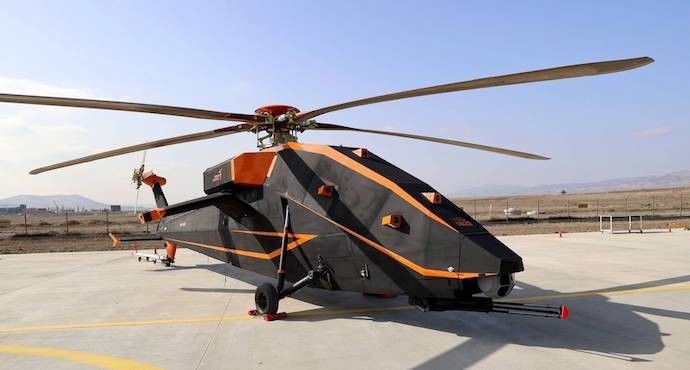 Turkish Aviation and Space Industry's all-electric and unmanned T629 attack helicopter
Turkish Aviation and Space Industry's all-electric and unmanned T629 attack helicopter
With improved technological capabilities and higher international sales, Turkish-made UAVs have been the most profitable and the most successful defense product for Turkey in 2021. Turkey became one of the top three drone manufacturers in the world. The Turkish Bayraktar TB2 line of drones saw a significant upgradation in speed, precision, and effectiveness to minimize the chances of unwanted human casualties.
One of the most successful lines was the heavy-class Akinci unmanned combat drone. The first six units of Akinci PT-2 were commissioned to the Turkish military in the August of 2021. The indigenously produced heavy combat drone has the capability to carry a payload of 1360 kg over a distance of 7500 km for more than 25 hours. The Akinci PT-2 TIHA broke Turkey’s flying record by flying up to 38,000 feet while being loaded at full capacity. The large drone can be paired with Roketsan’s lightweight Smart Micro-Munitions. These drones were used in Syria as well as the Armenia-Azerbaijan conflict with significant success.
Heavy-class Akinci is in the league of U.S. General Atomics MQ-9 ‘Hunter Killer’ Reaper Drone but costs far less than its competitor which makes it a great internationally-selling product for the Turkish defense industry. Poland, Ukraine, and India were among the top buyers of Turkish drones in the year 2021.
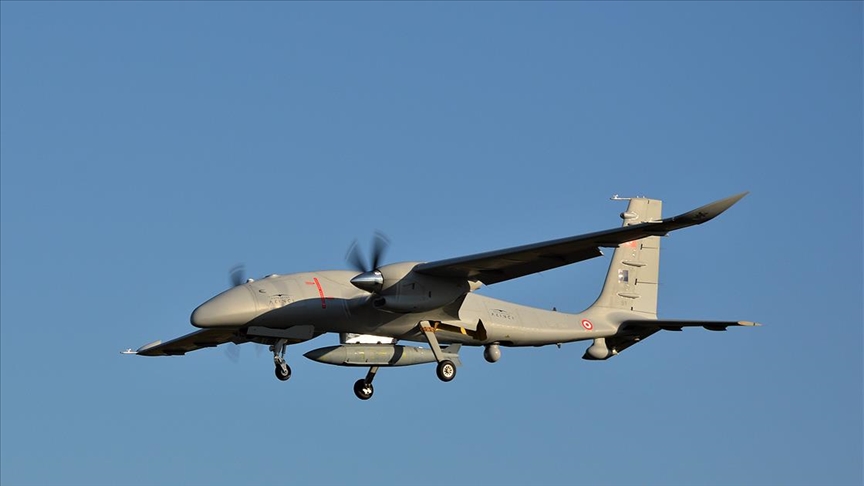 Bayraktar Akıncı - High-Altitude Long-Endurance Unmanned Combat Aerial Vehicle
Bayraktar Akıncı - High-Altitude Long-Endurance Unmanned Combat Aerial Vehicle
Land Power and Land-Based Aerial Defense
Turkey also witnessed a breakthrough in land defense technology in 2021 by launching its indigenously produced Altay tank prototype that would be commissioned into the Turkish military in the coming years. Based on the successful prototype results, Turkey managed to secure a pre-order of 100 tanks from Qatar. Altay is equipped with 360-degree automatic target acquisition, 120mm 55 caliber smoothbore gun. The tank is armored with modular chemical reactive armor.
In 2021 Turkey announced mass production of its unmanned ground vehicles (UGV). The production is sorted into three categories, lightweight, medium weight, and heavyweight categories. Ankara-based defense manufacturer FNSS is tasked to achieve mass production of these UGVs.
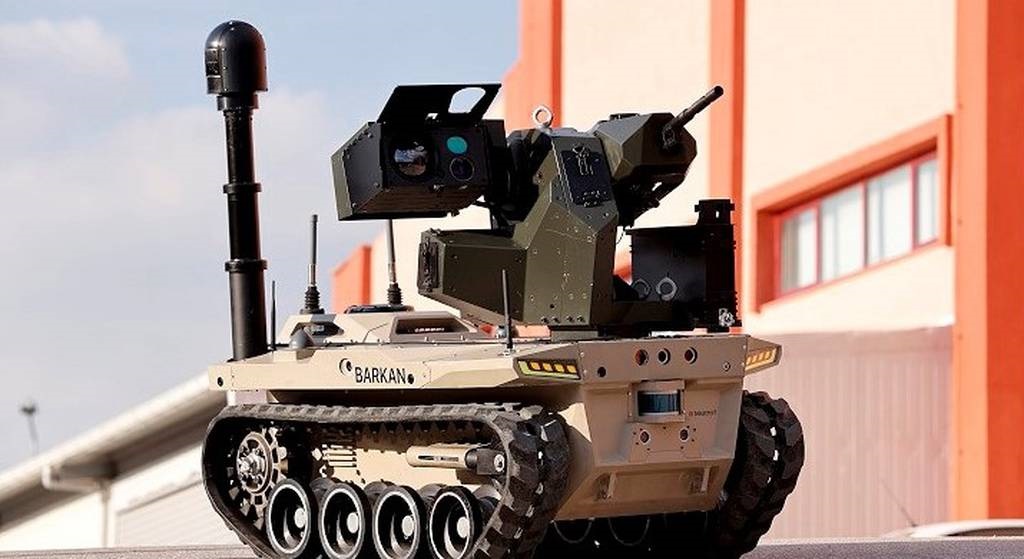 Havelsan Barkan - Autonomous Medium-class UGV System
Havelsan Barkan - Autonomous Medium-class UGV System
In November 2021, Turkey successfully tested its indigenous SIPER, a long-range air defense missile system. SIPER is expected to enter the Turkish Army’s arsenal by 2023. Apart from SIPER, the HISAR-A+ defense system was also successfully tested to be commissioned to enhance the Turkish aerial defense shield up to 15 kilometers in land and 10 kilometers in aerial range.
Turkey’s leading scientific and technology research council TUBITAK announced its plans of development for SAPAN electromagnetic gun. This is expected to play a key role in propelling the objects to hypersonic speeds and put Turkey in the race of Hypersonic weapons development. SAPAN electromagnetic technology can be ingratiated into SOM lower range observable cruise missiles to enhance its stealth capabilities.
Naval Technologies
‘Blue Homeland’ is Turkey’s naval doctrine originally developed in 2006. Blue Homeland played its role as an ongoing roadmap for the naval plans throughout the year. This ensured a steady advancement for the countries naval defense technologies and products as well as ensuring the safety of its sea borders in the Aegean and the Mediterranean Sea.
A major breakthrough of 2021 was testing the indigenously produced Anti-ship missile in the Black Sea with over 200 kilometers range. Turkey also announced six new submarines would enter service by the end of 2022 and significant progress would be made on countries first indigenously produced aircraft carrier.
Turkey also completed the production of four corvette-class frigates to be delivered to Pakistan in 2021, putting them into the list of a handful of countries in the world that are producing warships for international buyers.
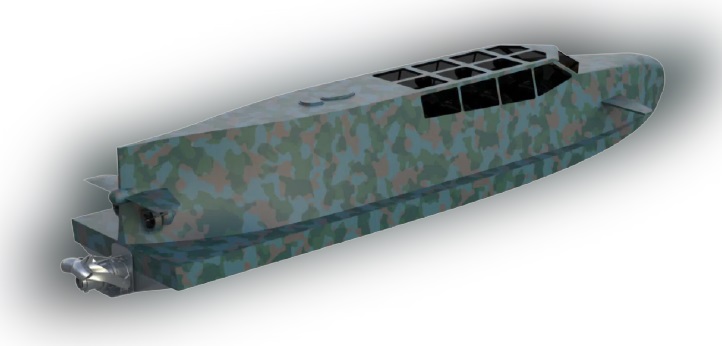 KM-STC10, a submersible semi-submarine SDV that would be used by the Turkish Special Forces
KM-STC10, a submersible semi-submarine SDV that would be used by the Turkish Special Forces
In December 2021, Turkish Defense Technology Company Kuasar Marin unveiled designs for its latest submersible Swimmer Delivery Vehicle (SDV). Turkey aims to invest in the upcoming project KM-STC10, a submersible semi-submarine SDV that would be used by the Turkish Special Forces.
Turkish Space Technology
The year 2021 can be termed as the year of new frontiers for defense industries. All technologically advanced countries came forwards with their plans to dominate space in the coming years. Turkey also announced its 10-year plan for the domestic space program that includes sending Turkish Astronauts into space, sending out more observational satellites, making it to the moon by 2023, and setting up a lunar base by 2024.
Turkey partnered with SpaceX to send its fifth-generation satellites into space in February and December of 2021. The 10-year space plan also includes establishing a spaceport in Turkey that would act as a launchpad for its own space missions satellite.
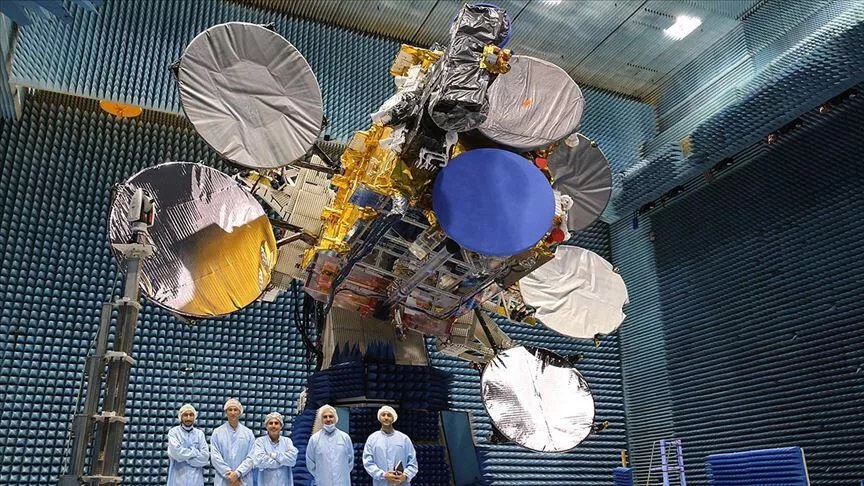 Turkey's fifth-generation communication satellite Turksat 5A
Turkey's fifth-generation communication satellite Turksat 5A
An overall look at the military and defense technology advancements in Turkey reveals that the country is on course to become one of the leading defense manufacturers in the coming years and becoming closer to achieving defense self-sufficiency before the 100th centennial of the republic’s independence by 2023-24.
ALSO READ:
Regions
Issues

















 Turkey’s Subsea Transfer Vehicle for Special Operations Forces
Turkey’s Subsea Transfer Vehicle for Special Operations Forces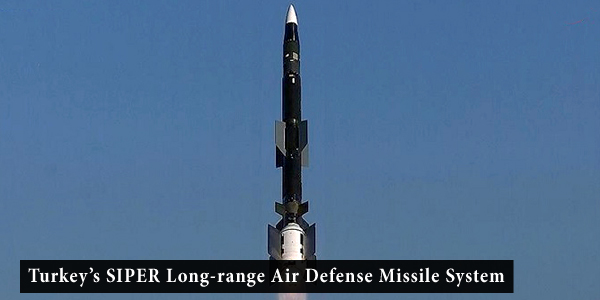 Turkey test-fires its first long-range air defense missile system
Turkey test-fires its first long-range air defense missile system







